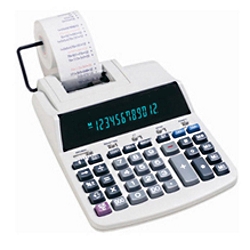Editor’s note: We went back to 2011 for this article. The information and techniques are still quite relevant, even if those cassette tapes are not…
How do you establish priorities for your operating budget each year?
Do you have a five-year plan for your ministry, a solid idea of where you want to be in the future, and a way to stay on task?
Do you find yourself constantly putting out fires, using duct tape and tin foil solutions, and never quite hitting the mark?
Consensus
In preparing to write this article, I enlisted the help of the Church Soundcheck Discussion Group.
I found their input especially interesting. Here’s a sampling of their comments:
C: One thing that always seems to be missing from small to medium and even some larger church budgets is a maintenance / emergency / contingency fund.
For example, the new IEM system gets put on hold for another year as soon as a dimmer pack fries or a monitor amp goes!
And when was the last time the church had a pro come in and check/reset gain structure, EQ, and do a component check?
It is surprising how often a church has a weak amp or blown component in their cluster and do not even realize it.
There are often complaints about the sound and the MoM/Pastor/Techies start talking about upgrades, when what they really need to do is to repair damaged components such as damaged cables, tape machine maintenance, projector and stage light lamps, lavalieres for wireless packs and non-functioning hearing assistance receivers.
The little things can add up to major dollars over the course of a year. I say protect the money set aside for new stuff by having a large enough maintenance budget to get the equipment functioning and keep it there.
Keith Thompson
Jacksonville, Florida
C: I’ve just started on my items for the next fiscal year. I always submit a decent list of items. I don’t break them down by need. I just give them my list.
I do however have the items broken down on my list as follows:
1.) Equipment I want
2.) Equipment we need but could do without
3.) Equipment we should have
4.) Last, but not least equipment we must have
Needless to say, by the time the list goes through the review process I usually end up with some of what we must have.
Rick Dean
C: We handle all maintenance with a maintenance fund. Money is put into it every month. The current balance is in the area of $25,000. All maintenance costs are taken from it (audio, video, computers, recorders, heating systems, paint, vehicles, etc).
This way we don’t have to budget for maintenance, unused money is carried over from year to year, and we don’t have to go to the board for money every time something needs to be fixed. It’s been working very well.
Bob Lewis
C: I believe the three most important items are:
1.) Capital expenditures for new equipment, equipment replacement/upgrades
2.) Repair and Maintenance
3.) Supplies: cost of disposables such as audio & video tapes, CDs, MDs, batteries, batteries, and more batteries.
One thing that I think we most overlook is the rental of extra gear for special events. I think that is a major item and should be included but I’m not sure if it’s a separate category or included in one of the above.
Keith Kotch
Orlando, Florida















